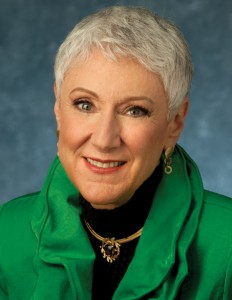Hadassah
President's Column
Of Hills and Valleys
 Earlier this month, Israel went through an annual observance that encapsulates the young nation’s history and also speaks to the essence of human experience. The transition from Memorial Day (Yom Ha-Zikaron) to Independence Day (Yom Ha’atzmaut) is a passage from solemnity to celebration that reminds all Israelis of the deep sacrifice and the great joy involved in achieving and maintaining sovereignty and freedom these last 66 years.
Earlier this month, Israel went through an annual observance that encapsulates the young nation’s history and also speaks to the essence of human experience. The transition from Memorial Day (Yom Ha-Zikaron) to Independence Day (Yom Ha’atzmaut) is a passage from solemnity to celebration that reminds all Israelis of the deep sacrifice and the great joy involved in achieving and maintaining sovereignty and freedom these last 66 years.
In the Jewish state, the day for remembering those who fell in defense of the nation is especially intense because every household has young people who serve in the armed forces and every family has either lost someone close or has a neighbor who suffered loss. And the celebration of independence is likewise palpable because Israel’s right to exist has been challenged so often, and for so long.
There’s an old saying: “Jews are like everyone else, only more so.” However unique Israelis may feel, the two days of observance in May reflect a universal human balance. Life is full of sorrow and joy, loss and gain. In ways that mirror life and death for people and nations and in ways that reflect feelings of self-worth, the ability to sustain our families and express our values, we all know the cycle of despair and happiness at the core of human experience. The Israeli calendar may sum up this tension in 48 hours of commemoration, but in daily life these two sides of existence are usually messier and less predictable.
Hadassah has been through a long restless winter of concern over the future of our hospitals in Jerusalem—and about our mission. As I write these words, it appears that the buds of spring have finally sprouted. We have reached agreement with the government of Israel on a set of recovery principles to resolve the Hadassah Medical Organization’s financial crisis and put HMO on the path to stability. Under the terms of the agreement, our medical center will move forward as the standard bearer of treatment and research in the Jewish state and remain under the ownership and control of Hadassah, the Women’s Zionist Organization of America.
This agreement, I believe, will not only reinforce our partnership with the State of Israel for generations to come, it will also assure the centrality of Hadassah’s role in building and healing Israel and strengthening the Jewish people.
I am especially grateful to Avigdor Kaplan, director-general of HMO, for steering the effort to resolve our financial and governance issues with such skill, dedication, courage and vision.
I am also grateful for the steadfast devotion of Hadassah’s 330,000 members in giving us the strength to get through the crisis.
Finally, I am humbled by the memory of Hadassah’s generations, the women who built the foundation of our medical work and on whose shoulders we stood so we could see this transition from challenge to success, even in moments when it seemed to be receding on the horizon.
Hadassah has successfully faced many challenges in its history. We have confronted war and terror, solved scientific riddles, mastered new technologies and overcome economic recessions and depressions. In the roller coaster year of 1948, we suffered the murder of 78 members of our medical staff on the road to Mount Scopus, lost our hospital behind enemy lines and still rejoiced as Israel was reborn. As frustrating as the recent financial crisis has been, it was far from our darkest chapter.
As we pursue our second century of making a difference in the Jewish and wider worlds, it would be nice to think that all our problems are behind us. For the moment, we can all take satisfaction in the knowledge that our own cycle of pain and joy still has, like life itself, two sides.










 Facebook
Facebook Instagram
Instagram Twitter
Twitter
Leave a Reply